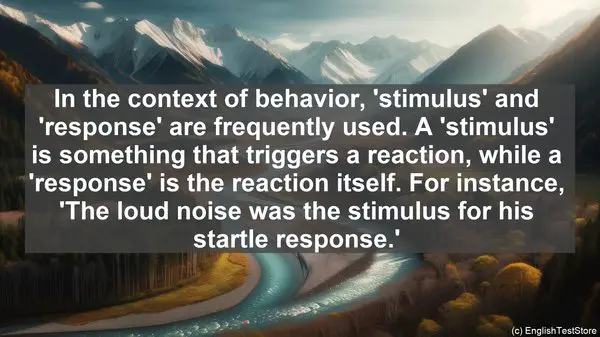Introduction
Welcome to our psychology class. Today, we are going to discuss the top 10 commonly confused words in psychology. Understanding these words correctly is crucial for your studies. So, let’s dive in!
1. Affect vs. Effect
One of the most common confusions in psychology is between ‘affect’ and ‘effect.’ ‘Affect’ is a verb, meaning to influence or change something, while ‘effect’ is a noun, referring to the result or consequence of something. For example, ‘The medication affected his mood’ and ‘The medication had a positive effect on his mood.’

2. Conscious vs. Unconscious
The terms ‘conscious’ and ‘unconscious’ are often used in psychology. ‘Conscious’ refers to being aware of something, while ‘unconscious’ means not being aware. For instance, ‘He was conscious of his actions’ and ‘She remained unconscious after the accident.’
3. Behavior vs. Attitude
While ‘behavior’ and ‘attitude’ are related, they have distinct meanings. ‘Behavior’ refers to actions or conduct, while ‘attitude’ is a person’s opinion or mindset. For example, ‘His behavior in class was disruptive’ and ‘Her positive attitude influenced the team.’
4. Nature vs. Nurture
The debate between ‘nature’ and ‘nurture’ has been a significant topic in psychology. ‘Nature’ refers to genetic or inherited traits, while ‘nurture’ relates to environmental factors and experiences. For instance, ‘Her musical talent is in her nature’ and ‘His nurturing environment shaped his personality.’

5. Psychologist vs. Psychiatrist
Though both professionals work in the field of mental health, there’s a difference between a ‘psychologist’ and a ‘psychiatrist.’ A ‘psychologist’ has a degree in psychology and provides therapy, while a ‘psychiatrist’ is a medical doctor who can prescribe medication. So, ‘She sees a psychologist for counseling’ and ‘He visits a psychiatrist for his medication.’
6. Phobia vs. Fear
While ‘phobia’ and ‘fear’ both refer to being afraid, they differ in intensity. ‘Phobia’ is an extreme or irrational fear, while ‘fear’ is a general term for being scared. For example, ‘She has a phobia of spiders’ and ‘He has a fear of heights.’
7. IQ vs. EQ
When it comes to intelligence, ‘IQ’ and ‘EQ’ are often mentioned. ‘IQ’ stands for intelligence quotient, which measures cognitive abilities, while ‘EQ’ refers to emotional intelligence. So, ‘His high IQ helped him solve complex problems’ and ‘Her high EQ enables her to empathize with others.’
8. Syndrome vs. Disorder
In psychology, ‘syndrome’ and ‘disorder’ are terms used to describe a set of symptoms. However, a ‘syndrome’ is a recognized pattern of symptoms, while a ‘disorder’ is a broader term. For instance, ‘Down syndrome’ and ‘Attention Deficit Hyperactivity Disorder (ADHD).’
9. Regression vs. Progression
When studying human development, ‘regression’ and ‘progression’ are important concepts. ‘Regression’ refers to reverting to an earlier stage or behavior, while ‘progression’ means advancing or moving forward. For example, ‘The child showed regression in his speech’ and ‘Her skills are showing progression over time.’
10. Stimulus vs. Response
In the context of behavior, ‘stimulus’ and ‘response’ are frequently used. A ‘stimulus’ is something that triggers a reaction, while a ‘response’ is the reaction itself. For instance, ‘The loud noise was the stimulus for his startle response.’
